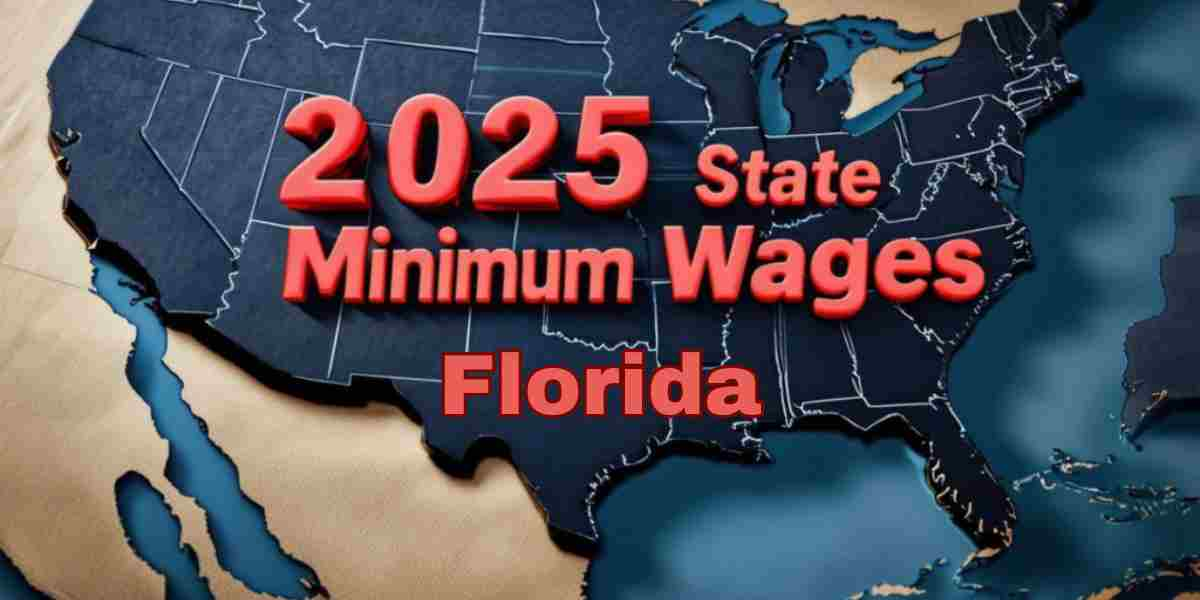The new minimum wage that will be in effect for millions of Floridians starting this year has officially been announced by the state.
It will be 16 years this July since the last increase in the federal minimum wage. Despite efforts, the $7.25 per hour pay has not increased since it went into effect in 2009.
Residents should be informed, nevertheless, that monthly charges are greater in other states, such as Florida.
Last September, the state raised the minimum wage from $12 to $13 per hour, and for tipped workers, it jumped to $9.98 per hour. In 2025, the Sunshine State’s minimum wage is anticipated to rise once more.
Beginning in January 2025, a new federal minimum wage will be paid to Floridians
In November 2020, Florida voters approved a state constitutional amendment that would increase the state’s minimum wage by $15 per hour on September 30, 2026, and then raise it every year after that.
The state legislature’s adoption of the public-supported Amendment 2 proposal has allowed for a gradual increase in the minimum wage, including one this year.
Florida’s minimum wage will increase to $14 per hour and $10.98 for tipped workers on September 30, 2025.
In 2026, the minimum wage will rise to $15, and for those who receive tips, it will rise to $11.98.
Although the amendment only calls for one-dollar increments up to $15 per hour in 2026, it specifies that subsequent increases will be contingent on changes in the Consumer Price Index to prevent harming workers’ purchasing power.

The $15 hourly rate will be in effect until December 31, 2027, so the Consumer Price Index-based indexed wage hikes will begin in 2028.
A slight increase is being made as Floridians cope with inflation and growing living costs. Matt Allen is an investor and a finance instructor.
He is the CEO and creator of Bean Wealth. Allen claims that the pace of inflation is so high that $1 would not make a difference.
The first thing that must be done is to lower prices. The average person can’t take their family of four out to supper on a Friday night.
Individuals have been going through a really challenging time.
Which states’ minimum wages will be the highest in 2025?
The minimum wage has increased in a number of states in recent years.
The following will be the highest minimum wages in the US, according to recent confirmation from the US Department of Labor:
| State/Region | Minimum Wage (per hour) |
| Washington, DC | $17.50 |
| California | $16.50 |
| Washington state | $16.66 |
| Connecticut | $16.35 |
| New York (NYC, Nassau County, Suffolk County, Westchester County) | $16.50 |
| New Jersey | $15.49 |
| Delaware | $15.00 |
| Illinois | $15.00 |
| Maryland | $15.00 |
| Massachusetts | $15.00 |
| Remainder of New York | $15.00 |
| Rhode Island | $15.00 |
Fourteen states pay the federal minimum wage of $7.25 since all states are obligated to pay a minimum wage for jobs covered by the federal Fair Labor Standards Act.
Some charge more for companies that fulfill specific criteria. Although Georgia only requires companies with six or more employees, businesses in Wyoming and Georgia pay $5.15 per hour.
Businesses in Montana that generate less than $110,000 in gross yearly sales make $4 per hour. Alabama, Mississippi, South Carolina, Louisiana, and Tennessee do not have minimum wage laws.
When Florida’s minimum wage reaches $15, what will happen?
Raising the minimum wage to better reflect the current cost of living was the aim of the amendment.
The state will revert to the previous method of calculating cost-of-living adjustments based on the CPI once it reaches $15.
Finally, it is crucial to remember that not all employers are subject to Florida’s minimum wage laws: Workers may get lesser pay in some occupations and situations where the Department of Labor has issued exclusions from the federal minimum wage law, as explained below:
- Professional, administrative, and executive staff.
- Commissioned sales personnel
- Farm laborers
- Workers at seasonal or leisure establishments
- People who deliver newspapers
- Federal Criminal Investigators
- Unofficial workers, like babysitters
- Children under specific circumstances
- Student workers
- Workers with disabilities if the company obtains a Department of Labor certificate approving it (a program to encourage more businesses to hire people with impairments).
- Among them are educational and nonprofit organizations that have requested an exception.
- Workers at companies with yearly gross incomes under $50,000







Leave a Comment